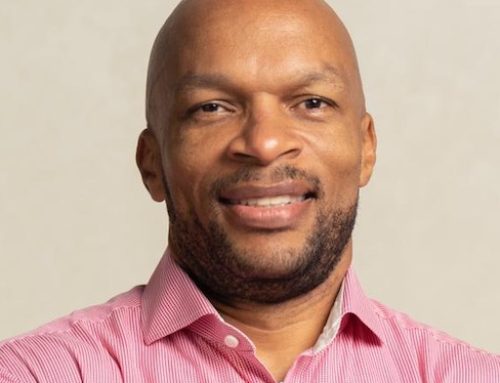Upon arriving at the registration desk, I was asked the survey question, “what do you consider to be the most important skill for future professionals?.”
I responded, “creativity.”
It was not until the series of very informative presentations and thought-provoking dialog came to an end in two short days that I realized the gravity of my response.
Industries are evolving; we are facing the fourth industrial revolution where many jobs will be lost to AI automation. Google.org’s Regional Manager, Héctor Mujica, shared statistics that put this reality into perspective – less than 5% of occupations are 100% automatable and 60% of occupations have at least 30% of their activities that are automatable. It is not as bad as we may have thought, but this sort of tech-inspired change across industries is inevitable.
It is this change to which we must intelligently respond as we look towards a technology-infused future. The important sectors in which we need to creatively prepare for this change are education, business and governance.
Education
According to Marta del Castillo, Exec. Director, Koga, there is a lag between what the market requires and what the education system is delivering. Social and cognitive abilities need to be cultivated. I have personally witnessed this “lag” as an academic and a practitioner within the tech field in Guyana. I could say that less than 50% of what I learned in the classroom was applied while in industry. The many students that I have mentored to become industry-ready specialists can confirm this. The domain knowledge we are fed in the classroom is fluid – it constantly evolves as new discoveries and innovations are made. This rate of change is particularly swift within the domains of computer science and information technology.
Keeping up with this change means placing a greater emphasis on the development of a student who thinks and applies knowledge rather than one who retains and recalls it – this is the mental model that adapts to new problems and comes up with creative solutions. It is this cognitive process that needs to be trained in the classroom; knowledge can always be supplemented. We live in a time where our access to information is unparalleled and supplementing our knowledge comes down to a well-worded Google search.
For the candidates we hire and the interns that we mentor at our tech firm, we focus on a cognitive process which combines critical-thinking, resourcefulness and self-management. Formal qualifications come secondary to these “soft-skills”. Those who possess or strengthen these skills can be thrown into new technologies. They are able to rapidly produce quality work with very little supervision. Modern industries favour these practitioners over traditional academics because they offer the greatest value to organizations that operate within industries which rapidly grow and evolve.
Education reform which focuses on producing practitioners rather than academics is vital in creating knowledge workers who are capable of effectively navigating the rapidly evolving, tech-infused domains of tomorrow to keep us apace.
Business
In tandem with industry changes, companies themselves have to intrinsically evolve as well. Marta del Castillo, Exec. Director, Koga says that companies of the future have a purpose that goes beyond turning a profit. These exponential companies have a massive transformational purpose, a purpose that provides benefits to the local and global society. They have a why and they want their work to have global impact to transform us as a world, as a planet. In the future we are facing, we need these companies that are out to save the planet.
Interestingly, del Castillo says these types of businesses that are impact-focused and purpose driven make more money than traditional, profit-focused companies. These brands showed 50% more growth than traditional companies. Further, 79% of consumers prefer brands with purpose.
What’s more, companies with purpose have the potential of attracting and retaining more talented individuals. Employees want to be agents of transformation, not just workers. Companies that intend to survive the future of work need to become stakeholders of transformation.
Governance
In the final talk delivered by Flavia Milano, Civil Society Senior Specialist at IDB, she shared that 75% of citizens in Latin America and the Caribbean say that they do not trust their governments. This statistic is staggering but not surprising. When faced with what must be achieved by nations to prepare for the future, trust in governance is vital.
Then Milano presented the amazing concept of disintermediation – which essentially suggests placing more power directly in the hands of entities that are the stakeholders of a shared future. It is called “three are better than one” – the three entities referred to in this powerful statement are government, civil society and the private sector. Its message is simple: through joint efforts to share information, promote constructive dialogue, and foster collaborations and partnerships among these entities, there would be greater representation, better informed decision-making and better governance for better societies, overall. It is brilliant!
We live in a world where change is the only constant. So we must as a society grow and adapt intelligently in order to ride the wave of change instead of being swept under its current. Our only hope in an unpredictably changing landscape is to apply our creativity in a responsive manner and rise above every new challenge we face.











